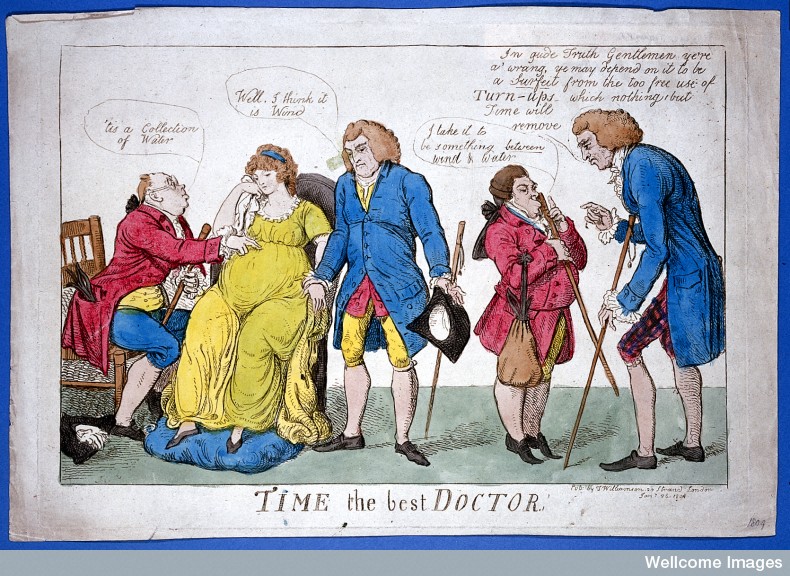
For another project I have been reading lots of early modern joke books and I thought I’d share some of what I’d found here. Books of amusing songs, poems, funny stories and jokes, known as jest-books sold a lot in the seventeenth century. These were not a new form, as Michael Mangan has pointed out, ‘jest-books had been popular since the Middle Ages, when they first appeared in Latin’.1
In the Restoration a number of these books were printed, but with a new edge since coffee shops had taken off in this era as places for men to meet, gossip, read news-sheets and pass time; at least one brand of jest-book, Coffee-house Jests (1677) tapped into this market. Its author, a Captain William Hicks from Oxford had already published a string of joke books, starting in 1671 with Oxford Drollery.2 The subjects of the jokes are husbands, lawyers, noblemen, but physicians were particularly fair game. One set of jokes plays on the idea that physicians were always touting for work:
A Country fellow meeting a Physician in the street, he desired him not to be angry with him because he was not sick yet (1671, p. 3).
and a bit later in the book the same joke appears, in an inverted form
One Mingo a Physician used to salute everyone he met withal with these words, I am glad to see you well; One whom he thus greeted, told him he thought he lyed, for the work went Ill with him, when people were well (1671. p. 150)
The notion of doctors being puffed up and full of themselves was also a source for jokes:
As an ignorant Physician told a Parson, that his cure maintained only himself; But mine says he, Maintains all the Sextons in Town (1671, p. 11)
The next one pokes fun at doctors who used uroscopy to diagnose diseases (and conditions like pregnancy)
Two Doctors walking, a Maid emptied a Pisspot by chance on their heads; one of them was angry; say’s t’other, We are Physicians, but let us be Patients; and calling to her, said, Are you not ashamed, being none of your calling, to cast water before Doctors (1671, p. 20)
The fact that doctors could consult female patients in private gave lots of scope for jokes too:
A Gentlewoman lov’d a Doctor of Physick, and to enjoy him, feign’d her self Sick: Her Husband desired Him to give her some comfort: He went up, and stayed and hour with her, and came down again: Her Husband askt him how she did: O says he, she has had two such extream fits, that if you had seen but one of them, it would have made your heart ake (1671, pp. 31-32).
The next one plays on the supposed naivety of country people compared with the more sophisticated town people – the ones who would be likely to be found in coffee shops reading joke books – at the same time it mocks a doctor for being an ass, and reads
A Country Farmer being sick, He and his Wife came to a Doctor, who advised him to drink Asses milk and Sugar every morning; but f you can get no Asses milk come to me, and i’ll help you to some: says his wife to him, pray do you think that the Doctor gives suck (1671, p. 44)
They also include lots of jokes about medical conditions and illnesses. Several jokes play on the idea that laughing hard could cause impostumes (cysts or abscesses) to burst and so cure the sufferer. A play on the timeless notion that laughter is the best medicine, perhaps. Jest books also include jokes which pun on a disease as a metaphor:
In Plague-time one night, a Constable heard a woman beating on her husband: he presently put a Red Cross on the door, saying there could not be a greater plague than that (1671, p. 4)
Doctors who think they have the answers when they haven’t really are a perennial topic for humour as the cartoon below shows:

Oxford Jests from which these examples are taken, has another interesting connection with some of our previous posts, since it was published by Simon Miller, the publisher of Jane Sharp’s The Midwives Book, and in the same year too.
______________________________
- Michael Mangan, A Preface to Shakespeare’s Comedies, 1594-1603 (London: Routledge, 1996), p. 24.
- Captain William Hicks, Oxford Drollery Being New Poems and Songs (Oxford, 1671); Captain William Hicks, Oxford Jests: A Collection of Witty Jests, Merry Tales, and Pleasant Joques (London, 1671); Captain William Hicks, Coffee-House Jests by the author of the Oxford-jests (London, 1677).
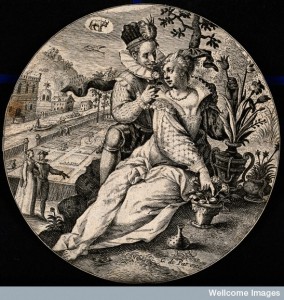
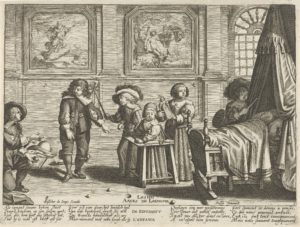
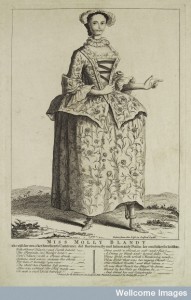
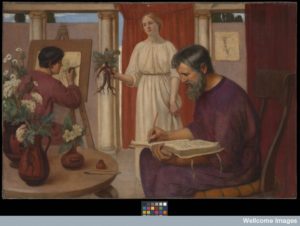

3 thoughts on “Poking fun at Physicians”
Comments are closed.